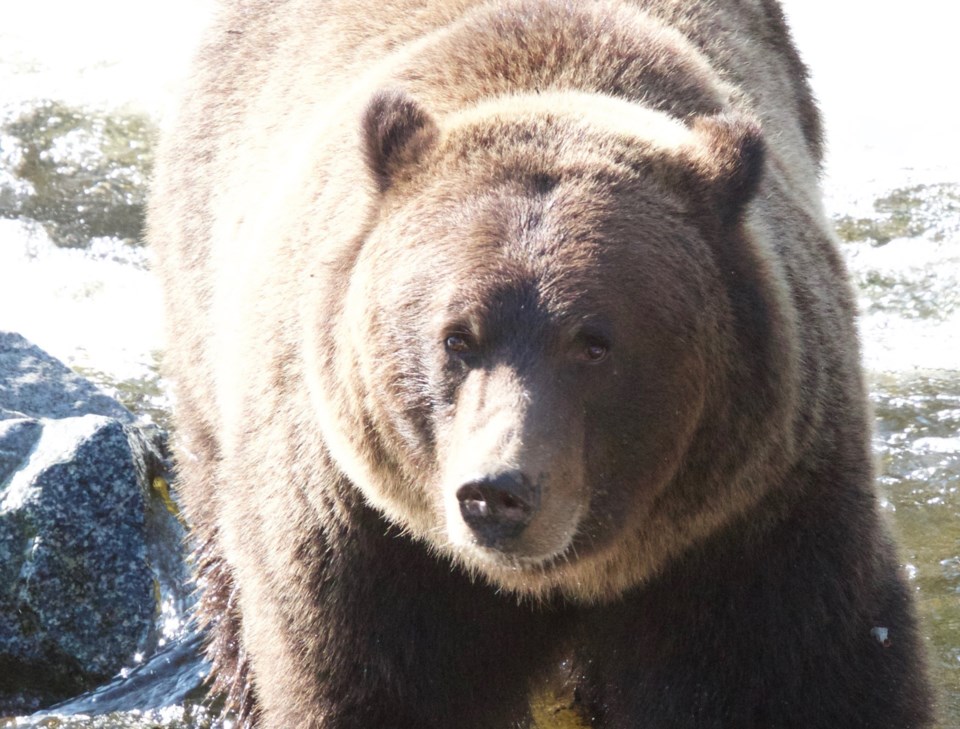The ban on grizzly bear hunting is a step in the right direction, but it doesn’t address the two main factors threatening the future of the species — loss of habitat and food sources due to human encroachment and climate change, according to the chair of the Grizzly Bear Foundation.
These factors will affect the bears much more than hunting, said Michael Audain.
This week, the B.C. NDP government acted on its campaign promise and cancelled the grizzly bear trophy hunt across the province. The change will take effect at the close of this year’s hunting season, which ends on Nov. 30. It also includes a complete ban on all hunting of grizzlies within the Great Bear Rainforest, but still allows people to kill bears for meat.
“We happen to know that hardly anyone goes out to shoot grizzly bears for meat,” Audain said, adding that he heard the meat is not very tasty.
Audain said the group was “very pleased” with the move, which is something it recommended in a report earlier this year.
The Grizzly Bear Foundation was set up in 2016 with a focus on the long-term welfare of the animal. It is Canada’s only charitable organization solely dedicated to the well-being of the grizzly bear. It aims to achieve this goal through research, public education and conservation.
One of the foundation’s first orders of business last year was to launch a board of inquiry to review the status and future of B.C.’s grizzly bears. The province is home to the largest population of grizzly bears in the country, it’s second in the world to Alaska. The animal is listed as a species of special concern, and in several areas of B.C. it is already extirpated (locally extinct).
After consulting with a broad group of B.C. residents and organizations, the foundation publicly released its findings in March.
“Grizzly bears have lived in our province for at least 50,000 years,” Audain said at the time. “But unless we take serious steps now to secure their wilderness home from encroachment by human activities and protect their food sources from the impact of climate change, in a few decades the bears may disappear.”
Biologists refer to the grizzly bear as a keystone species — where the bears thrive, the environment is also healthy.
In releasing the inquiry’s findings, Audain said the group found that the future of the bear is uncertain if changes aren’t made.
“When we embarked on this inquiry, I was under the impression that the main threat to the survival of the grizzly bears was the annual trophy hunt,” he said. “While termination of the hunt is clearly essential, grizzly bears face even greater threats from burgeoning human encroachment into their habitat, as well as the loss of essential foods including wild salmon and huckleberries. There are dark days ahead for the province’s grizzly bears if British Columbians are unwilling to address these issues and ensure that the bears have a secure home in our province.”
Audain said the province has been losing about 300 bears a year to the annual hunt, but thousands more are at risk.
The Grizzly Bear Foundation is holding its first major public event next month. Night of the Grizzly is set for Saturday, Sept. 16 at the Vancouver Convention Centre. In addition to dinner and entertainment, attendees will be able to become a Grizzly Guardian to one of the province’s estimated 15,000 bears by purchasing a bear — $80 (the cost of a resident hunting tag) for a small bear and $1,000 (the cost of a non-resident tag) for a large bear. Once purchased, grizzly guardians will be able to track their bears on the Grizzly Bear Foundation’s website.
Details at grizzlybearfoundation.com.




